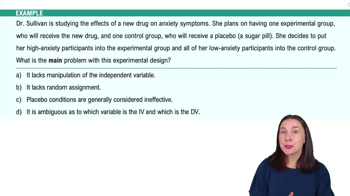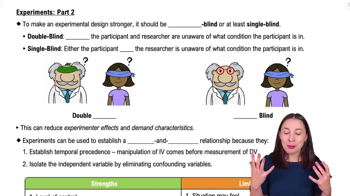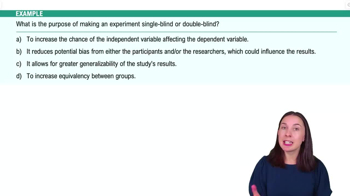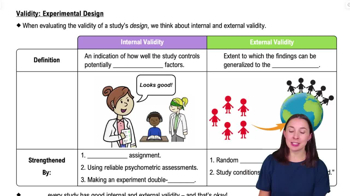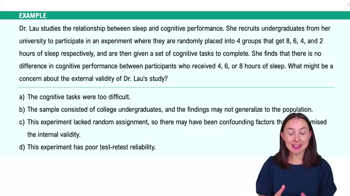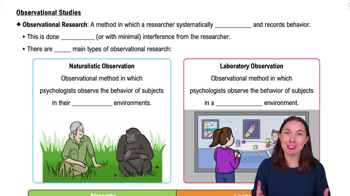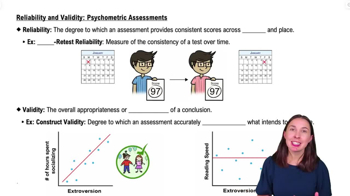Table of contents
- 1. Introduction to Psychology1h 43m
- 2. Psychology Research2h 20m
- 3. Biological Psychology2h 41m
- 4. Sensation and Perception28m
- 5. Consciousness and Sleep32m
- 6. Learning41m
- 7. Memory34m
- 8. Cognition37m
- 9. Emotion and Motivation35m
- 10. Developmental Psychology33m
- 11. Personality48m
- 12. Social Psychology41m
- 13. Stress and Health41m
- 14. Psychological Disorders44m
- 15. Treatment47m
2. Psychology Research
Intro to Research Methods
Struggling with Psychology?
Join thousands of students who trust us to help them ace their exams!Watch the first videoMultiple Choice
_____ may cause miscarriage and low birth weight for a developing embryo.
A
Rubella
B
Mercury
C
Syphilis
D
Caffeine
 Verified step by step guidance
Verified step by step guidance1
Identify the key terms in the problem: miscarriage, low birth weight, and developing embryo.
Understand that the problem is asking about substances or conditions that can negatively impact prenatal development.
Review the potential effects of each option provided: Rubella, Mercury, Syphilis, and Caffeine, on pregnancy.
Recognize that Rubella is a viral infection that can cause congenital rubella syndrome, leading to serious birth defects.
Consider that Mercury is a heavy metal that can lead to neurological damage in a developing fetus, and Syphilis is a sexually transmitted infection that can cause miscarriage or stillbirth. Caffeine, in high amounts, is associated with increased risk of miscarriage and low birth weight.

 1:46m
1:46mWatch next
Master Roadmap of the Lesson with a bite sized video explanation from Hannah Gordils
Start learningRelated Videos
Related Practice










